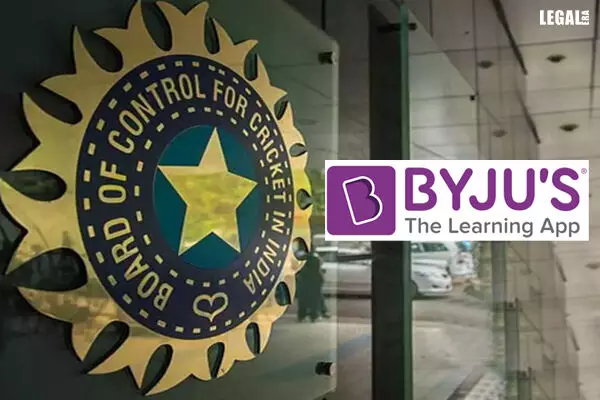- Home
- News
- Articles+
- Aerospace
- Artificial Intelligence
- Agriculture
- Alternate Dispute Resolution
- Arbitration & Mediation
- Banking and Finance
- Bankruptcy
- Book Review
- Bribery & Corruption
- Commercial Litigation
- Competition Law
- Conference Reports
- Consumer Products
- Contract
- Corporate Governance
- Corporate Law
- Covid-19
- Cryptocurrency
- Cybersecurity
- Data Protection
- Defence
- Digital Economy
- E-commerce
- Employment Law
- Energy and Natural Resources
- Entertainment and Sports Law
- Environmental Law
- Environmental, Social, and Governance
- Foreign Direct Investment
- Food and Beverage
- Gaming
- Health Care
- IBC Diaries
- In Focus
- Inclusion & Diversity
- Insurance Law
- Intellectual Property
- International Law
- IP & Tech Era
- Know the Law
- Labour Laws
- Law & Policy and Regulation
- Litigation
- Litigation Funding
- Manufacturing
- Mergers & Acquisitions
- NFTs
- Privacy
- Private Equity
- Project Finance
- Real Estate
- Risk and Compliance
- Student Corner
- Take On Board
- Tax
- Technology Media and Telecom
- Tributes
- Viewpoint
- Zoom In
- Law Firms
- In-House
- Rankings
- E-Magazine
- Legal Era TV
- Events
- Middle East
- Africa
- News
- Articles
- Aerospace
- Artificial Intelligence
- Agriculture
- Alternate Dispute Resolution
- Arbitration & Mediation
- Banking and Finance
- Bankruptcy
- Book Review
- Bribery & Corruption
- Commercial Litigation
- Competition Law
- Conference Reports
- Consumer Products
- Contract
- Corporate Governance
- Corporate Law
- Covid-19
- Cryptocurrency
- Cybersecurity
- Data Protection
- Defence
- Digital Economy
- E-commerce
- Employment Law
- Energy and Natural Resources
- Entertainment and Sports Law
- Environmental Law
- Environmental, Social, and Governance
- Foreign Direct Investment
- Food and Beverage
- Gaming
- Health Care
- IBC Diaries
- In Focus
- Inclusion & Diversity
- Insurance Law
- Intellectual Property
- International Law
- IP & Tech Era
- Know the Law
- Labour Laws
- Law & Policy and Regulation
- Litigation
- Litigation Funding
- Manufacturing
- Mergers & Acquisitions
- NFTs
- Privacy
- Private Equity
- Project Finance
- Real Estate
- Risk and Compliance
- Student Corner
- Take On Board
- Tax
- Technology Media and Telecom
- Tributes
- Viewpoint
- Zoom In
- Law Firms
- In-House
- Rankings
- E-Magazine
- Legal Era TV
- Events
- Middle East
- Africa
NCLAT Refuses Interim Relief On Byju’s-BCCI Deal

NCLAT Refuses Interim Relief On Byju’s-BCCI Deal
Strap – Riju Ravindran had sought to block the firm’s CoC from taking up BCCI’s application to withdraw the insolvency petition against Think & Learn
The Chennai bench of the National Company Law Appellate Tribunal (NCLAT) has refused interim relief to Byju's suspended director Riju Ravindran, who sought a Rs.158-crore settlement with the Board of Control for Cricket in India (BCCI).
Ravindran had approached the tribunal to block the ed-tech firm’s committee of creditors (CoC) from taking up BCCI’s application to withdraw the insolvency petition against Byju's parent company, Think & Learn.
Earlier, the National Company Law Tribunal (NCLT) directed the CoC to decide on the application.
Ravindran, the brother of the company’s founder Byju Raveendran, argued that the settlement with the Indian cricket board happened before the CoC was constituted.
However, the appellate tribunal stated that the application that the BCCI filed should have first been submitted to the CoC.
Under the Insolvency and Bankruptcy Code (IBC), approval of at least 90 percent of CoC members is required to file an application with the NCLT. But in November, the company's resolution professional (RP) requested the NCLT to consider the application, stating that it was filed before the CoC was formed.
Representing Ravindran, senior advocate Arun Kathpalia remarked that not placing the application before the CoC meant the latter had not consented. Therefore, no prejudice was caused to them. But it caused prejudice to us because if the CoC considered and rejected, it would create another issue.
Byju's insolvency proceedings began in 2024 after the BCCI moved the NCLT to recover the Rs.158 crore the company owed for a sponsorship deal. The parties later decided to settle after Ravindran agreed to pay the amount to the BCCI.
However, Byju's other creditors, including the US lenders represented by Glas Trust, approached the Supreme Court against the settlement.
The apex court quashed NCLAT’s earlier ruling approving the settlement. Thus, the warring factions approached the NCLT.



